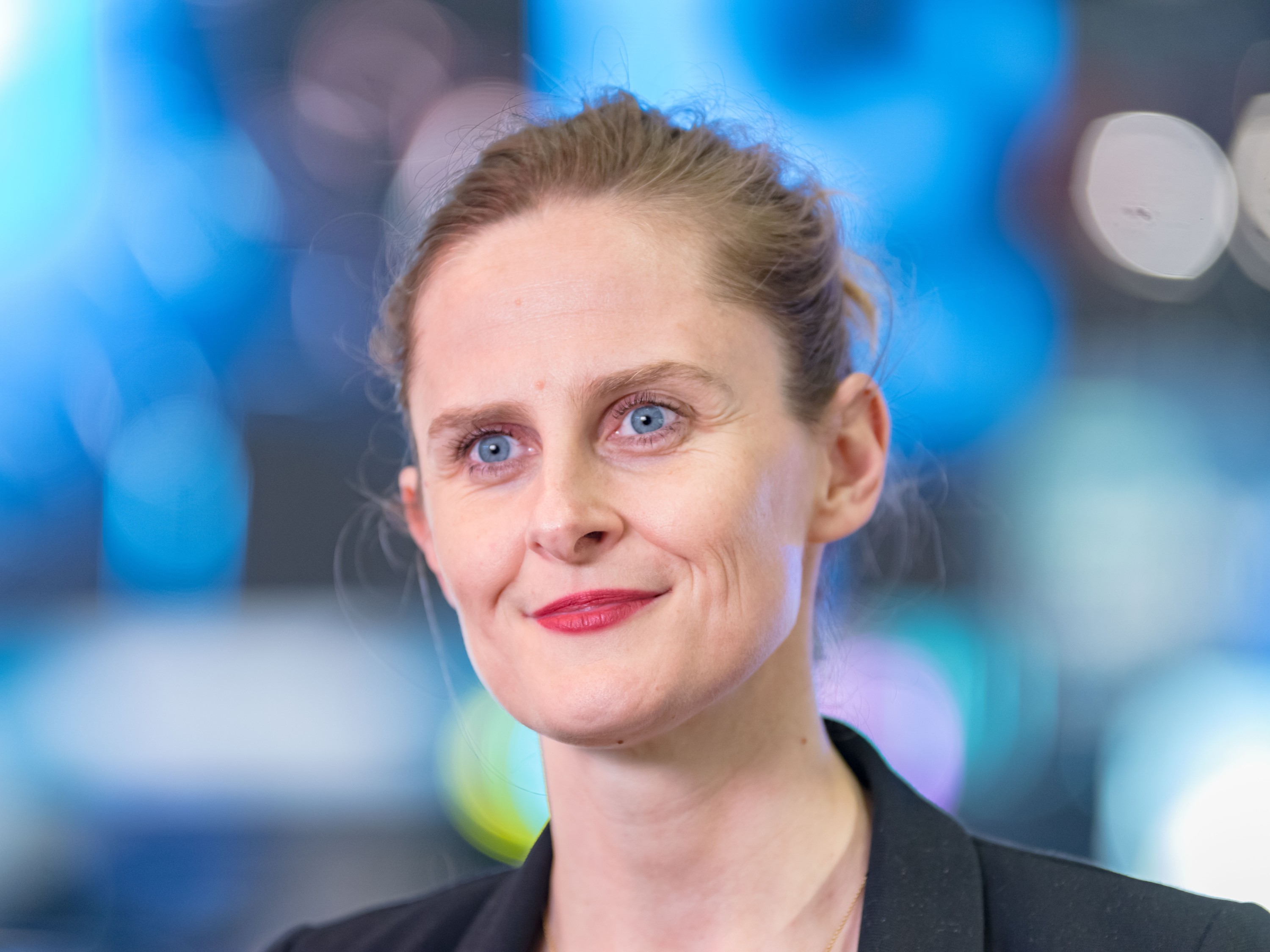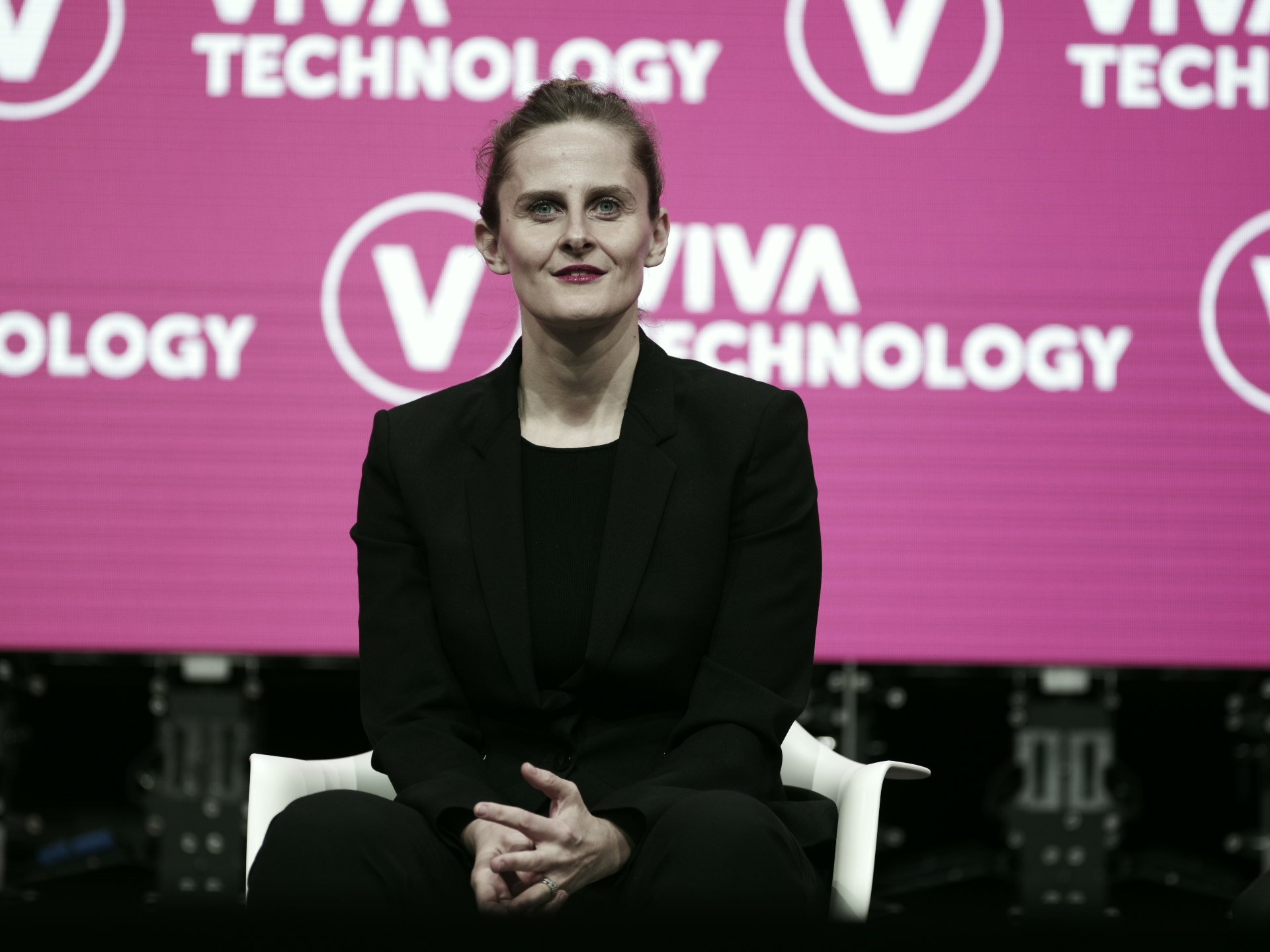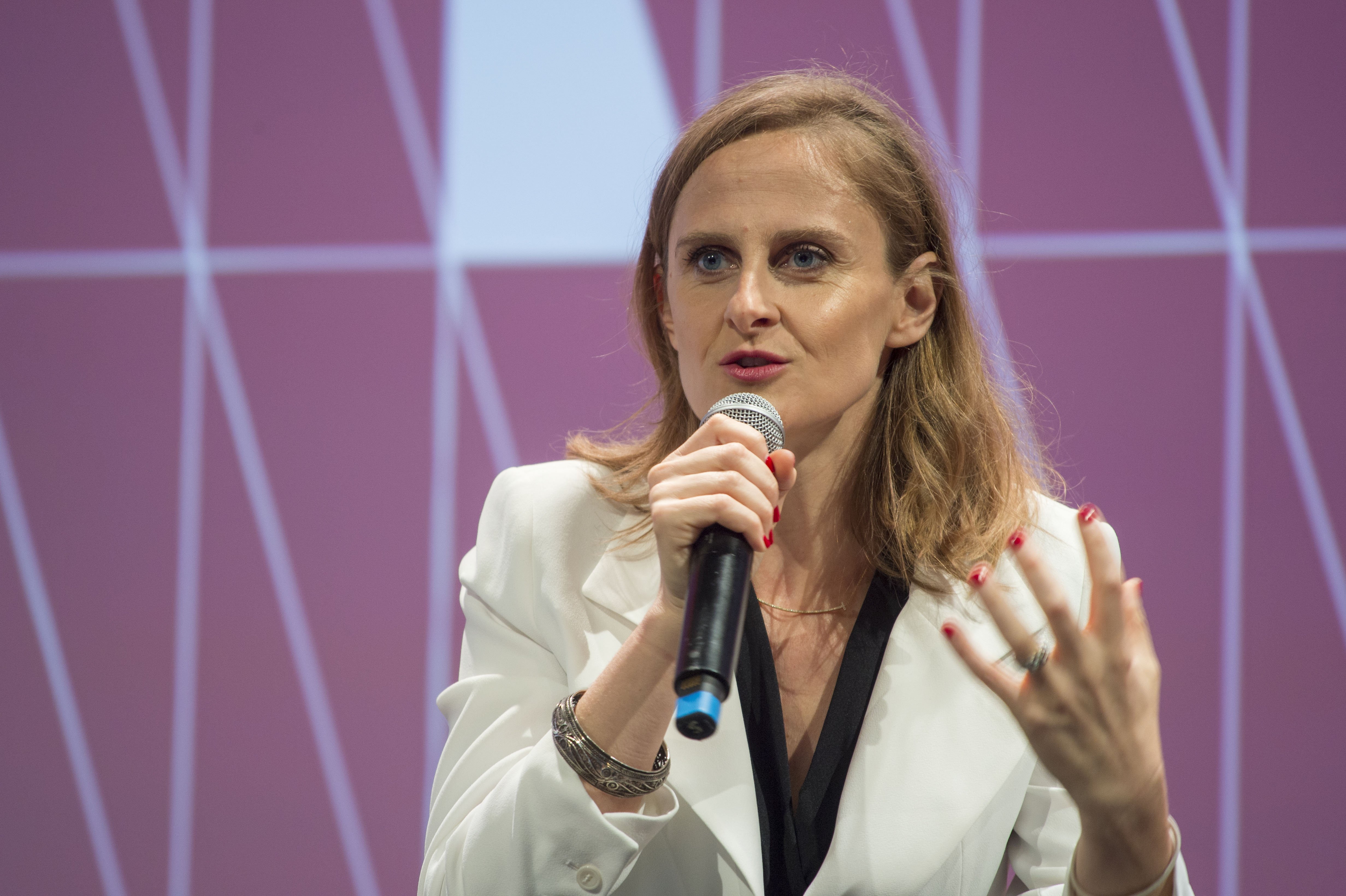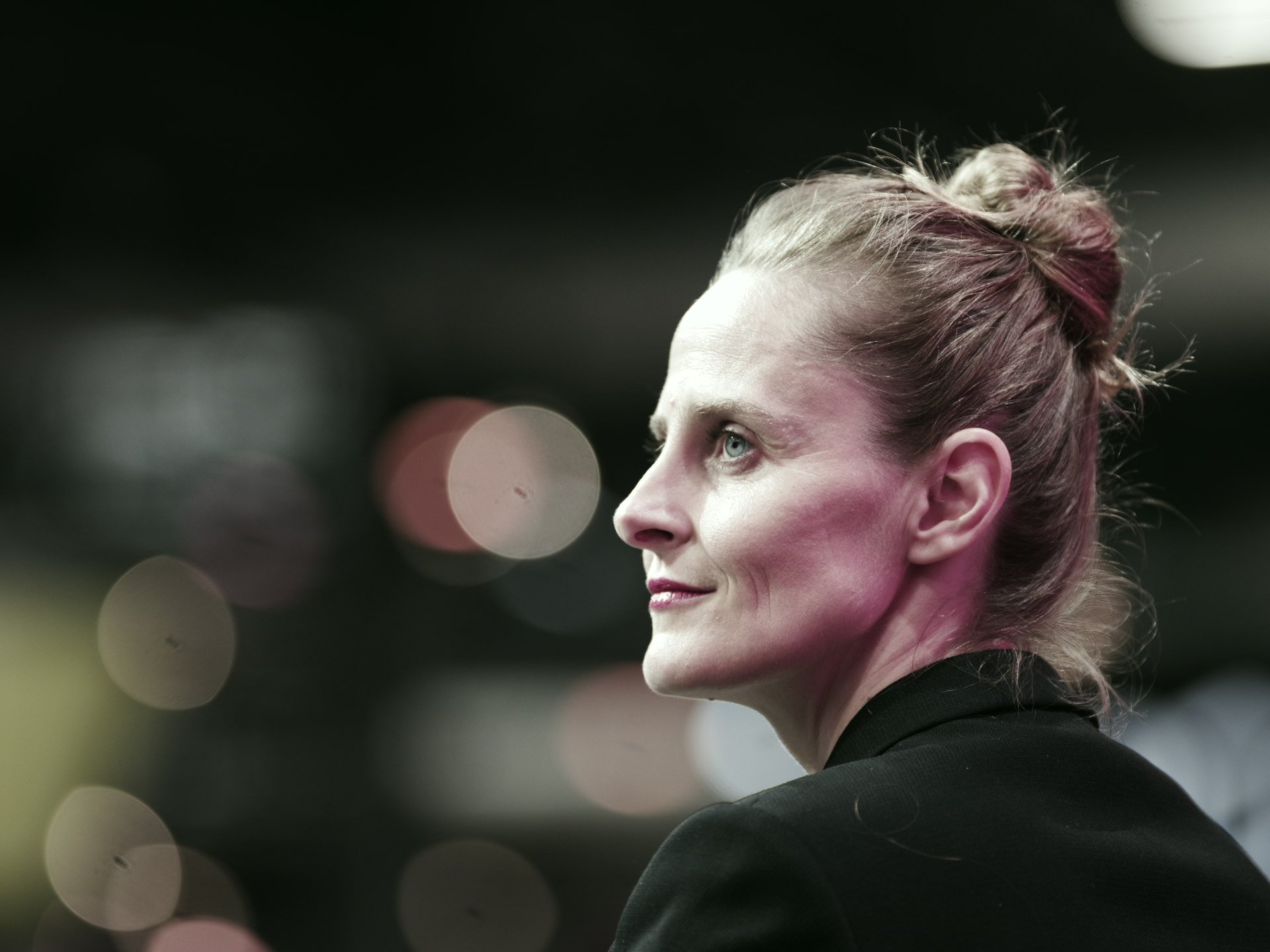Get analysis, insight & opinions from the world's top marketers.
Sign up to our newsletter.
WFA CEO, Stephan Loerke, interviewed Lubomira Rochet, the Chief Digital Officer of L'Oréal, on her winning the Global Marketer of the Year award and what makes for great marketing in the future.
Lubomira Rochet was one of the six global marketers shortlisted in 2019 for WFA's annual recognition. Following a combined vote from an expert jury, the industry at large through open voting, including readers of The Drum - WFA's Global Marketer of the Year media partner - and WFA members, she was announced the winner of the 2019 Global Marketer of the Year award.
Stephan Loerke (SL): These are indeed exceptional times. We were supposed to be onstage at Advertising Week in London, and obviously had to change our plans. Thank you for your flexibility.
After a long process boasting many nominations and a shortlist of six of the world’s most talented marketers, I am delighted to be able to announce you as WFA’s Global Marketer of the Year. Congratulations. What does this mean to you?
Lubomira Rochet (LR): Thank you so much, Stephan. It means a lot to me and I want to thank the WFA and all those who have voted for me. My first thoughts are for my colleagues behind the massive marketing and digital transformation at L’Oréal around the world. And I'm thinking of them especially in these hard times. I want to express my gratitude to Jean-Paul Agon, our CEO, who has inspired us all with his vision that digital would totally change our business, our marketing and the industry at large. Personally, I feel very humbled, honoured and grateful. For someone who was an outsider to marketing in the beauty industry, I feel it is also a form of recognition of all the underdogs out there. And a beautiful story of diversity and the testimony of what difference, bringing a different view to a business, can make.

SL: This is only the third year we have run this competition. The goal was to inspire marketers around the world, so it’s interesting that our third winner isn’t in fact a CMO, but a CDO. Should we read into this a great deal?
LR: Is it a big difference? Yes and no. Yes, if you think that the CDO is the one who is going to fix your websites and CRM and build some apps. Yes, if you think that your CDO is the techie guy and an expert, but no, if you think that the CDO is the closest proxy to the voice of your consumer in your executive committee.
Lots of people mistake the digital revolution for a tech revolution. For me, first and foremost, it’s a consumer revolution because it has radically changed the relationship between brands and people. And therefore, the CDO, at least the way we conceive it at L'Oréal, is a kind of Chief Transformation Officer with the skill to translate the big global trends and consumer insights into new capabilities, new offerings and new experiences. In a way, I would say the CDO is a transformer and a translator.
SL: As you know, we worked with 2CV to conduct the largest-ever study from WFA, involving 28 of our national advertiser associations and covering 31 markets. We have yet to release the results, but we'd like to use some of the insights as the basis of our conversation, if you don't mind. And let me jump into actually the first question relating to the global, regional and local dynamic.
SL: 71% of our respondents said the marketer of the future needed a global mindset. But we also saw many differences in skills valued by region, for example Asia versus Europe. As a global organisation, how do you seek to address this need for regional and local cultural nuances?
LR: That's one of my favourite questions. What I know for sure is that there is a very strong need to balance things that are true in principle, such as consumer-centricity, brand-building experience, design, sense of purpose and local perspectives. I should say, we as marketers are really facing fragmenting local or regional ecosystems; the regional ecosystem in Asia has nothing to do with the one in the US or in Europe, or in Russia, or in the Middle East. We see different consumer trends, really fragmented into the world. Take privacy, for example. It is a very good example of very different consumer expectations in Asia, in Europe, which led the charge on data privacy with GDPR, and the US.
We face an increasingly local competition. So we really need to balance global perspective, the company North Star and global strategy, with local cultural relevancy. I think this is absolutely key. And this is very natural for us because our operating model is the one of a flotilla. Our operating model is really strategically concentrated or centralized, but operationally very decentralized. We have our feet on the ground with our local teams able to understand and "seize what is starting" - one key L’Oréal mantra - and make it big. Part of our global role is also to leverage and scale what has worked in various countries. This is how L’Oréal was the first to bet on brands.com in the US in the early 2000s and on TMall in China from 2013 onwards.

SL: We know marketers are in a big hurry to increase their knowledge in relation to data and technology, but our research tells us that the relative importance of ‘marketing fundamentals’ are in decline. One member even said, “One of the greatest capability gaps that we've got at the moment in marketing departments is marketing”. Are we in danger of destroying the foundations of our function?
LR: As I often say, Google Glass slash DMP slash agile marketing slash add any bingo buzzword here is not a strategy. Everywhere there’s a new buzzword, there's new technology, there's a new platform popping up, with hundreds of people explaining you why it is going to magically solve all your issues and provide this magical real-time, data-driven omnichannel experience that is going to increase your sales by 100%. Improve your ROI by 20%. So, you know, I agree with you that sometimes we lose common sense.
We must remember that at the heart of everything we do is the fact that we serve customers, we serve a company purpose and strategy. And we work for creating a better world; more sustainable, more diverse and more responsible. Our job is to build brands with a true sense of purpose, is to read our consumers, understand their expectations and translate them into new products and increasingly new services and online and offline experiences.
This being said, I still think that marketing, like all functions, has to reinvent itself for a digital world, has to integrate new platforms, new technologies and data to become more efficient, more relevant, more personalized, but never forgetting that it's at the service of consumers and of a company’s mission.
SL: Our respondents tell us the marketer of the future needs MANY skills: market insight, strong business acumen, martech, data and insight specialist, be an entrepreneur with both a global perspective and cultural sensitivity. Can a CMO or CDO can really possess all these skills? Does the unicorn marketer exist or is she a myth?
LR: Have you ever seen a unicorn? Well, me, I haven't. So, for me there are only two very important key skills and superpowers in the years to come. The first is the skill of transformation, the second is that of empathy.
So first we need to rethink our approach to change. For many, many years and years ago change used to be this necessary, shaky step between two very stable and desirable steady states. Well, today change is the only stable element that we have. In a way transformation is the new ‘business as usual’. Marketers have to learn to be flexible, adaptable, resourceful, to lead their organization and navigate in a very volatile, uncertain, ambiguous world.
The second key trait is empathy because this is what will help marketers grasp early cultural trends, understand new consumer expectations even at the stage where there are only weak signals, as well as lead their teams and those teams of experts in a very multicultural and multidisciplinary setting.
SL. The emphasis on the marketer of the future’s mentality related to much softer skills; inclusivity, empathy and cultural sensitivity. In the past these have been viewed as more feminine traits. Is the future female? 😊
LR: I don't know if those are feminine or masculine traits. What I know is that there is a profound need for a new form of leadership that is less a leadership based on past experience or expertise, but more based on empowerment in problem-solving. This is called servant leadership. This has been fundamental in my own leadership style for many, many years. And if you think about it, the leader used to be this been-there, done-that, go-to person whose first-hand experience of similar problems used to inspire and teach and guide the more junior team members.
Today, with phenomena such as TikTok emerging and reaching 1 billion users in less than 18 months, there is zero chance that they've been there, done that. For me, leadership skills have to move more towards business framing, giving a sense of the why to the teams, providing the strategic canvas and then empowering the teams to run on the ground, be efficient and problem solve for them, creating the true context for collective success.

SL: 80% say sustainability and 75% say data ethics will become more important to their roles in the next five years. Yet, as of now, only just over 30% felt either were part of their roles today. Why do you think that is and how might we change it?
LR: Sustainability and Ethics departments exist in all modern organizations nowadays. And so we have Chief Sustainability Officers and Chief Ethics Officers. And I think that maybe one of our collective mistakes is that we thought that everything should be done by them. I personally believe that sustainability and ethics should be at the heart of everything, every company department and every company activity. So they should be absolutely part of marketing. And in a way marketing is awakening to the fundamental shift in consumers expectations about transparency, sustainability and responsibility.
More marketing people are now including these in their campaigns, promoting values such as diversity, inclusivity, sustainability and ethics into everything we do. This is a shift we are taking very seriously at L'Oréal. My department and all the CMOs across the company are working very closely with our chief sustainability and ethics officers in the context of our ‘Beauty Tech for Good’ initiative. So, for example, some of our brands are currently working on zero carbon emissions product launches. Another example is our augmented reality subsidiary ModiFace, which is actively tackling topics around ethical AI and the ethics of algorithms in the way they build services such as our virtual make-up try-ons or our skincare diagnostics.
SL: It's interesting to see that this drive for more ethics in our industry is something that is largely reflected also in the responses of, of those who participated in our research. 92% of them told us that ‘using data in an ethical way is vital for the sustainability of digital marketing’. Now, how are you at L'Oréal addressing this unique challenge of data ethics within the company and with your partners?
LR: With the digital revolution and the explosion of touchpoints, the amount of data we are collecting as a business has exponentially increased. At L’Oréal, we operate with a 1.3 billion consumer data points that we use primarily to better predict trends and develop more relevant products as well as to deliver more personalized interactions and products. AI and algorithms are very powerful ways to do it at scale. But that comes with immense risks, especially in terms of bias, which could mean discriminating against more vulnerable populations. The ethics of AI is particularly important in beauty because beauty is diverse, beauty is very personal, beauty is linked to our feeling of identity. So we must make sure that our AI and our algorithms are representative and inclusive in the way they recognize you, your facial features, your skin tone, and also be transparent in the way they recommend you products and brands. We are working on it at L’Oréal as part of our ‘Beauty Tech for Good’ initiative internally as well as with our platform partners and with industry partners, such as the WFA and regulatory bodies.
The first obsession for us is to ensure that AI supports a human-centered and human-first approach. That AI is built to help and empower humans and not the other way around. So the second big priority is to ensure transparency of AI; making sure that every time a consumer on our digital touch points is interacting with AI it's very transparent to the consumer. Third, it's about transparency and more importantly, representativeness. We must make sure that the underlying data sets that we use and that serve to train our AI is composed of representative enough data for all the different parts of the population. For example, with ModiFace, the skincare diagnostic, we use more than 10,000 pictures and images with all skin types, from all races to make sure the infinite diversity of beauties are represented.

SL: As our Global Marketer of the Year, we’d love to know what you’d like to see change in our industry in the year ahead?
LR: Given the very particular context we live in, there are chances that digital interactions increase even more in the months and years to come. We expect people to spend even more time searching, discovering and buying our products online. The key question is how can digital technologies help augment, support the consumer experience without losing the sense of community, the sense of humanity that comes with face-to-face contact and interactions? This is why we are investing in technologies such as virtual consultations with our Beauty Advisors, one-to-many broadcasting, AR and VR to make sure that human expertise and technologies always work hand in hand.
What we see also is that social commerce is also on the rise, with a fast development of live streaming. We see more and more influencers and even regular consumers becoming super sellers online. Even disrupting the very established models of e-commerce as we as we know them.
Finally, more and more people will want to connect with our brands online, through our platforms, but also through messaging or live video chats with video assistance. And we really must live up to this new age of conversational marketing. So in short, I believe that the future of marketing is about services; consumer experience online and offline, about social commerce and conversational marketing.
Watch Lubomira's video interview for Global Marketer of the Year here:

For more information or questions, please contact Rob Dreblow at r.dreblow@wfanet.org